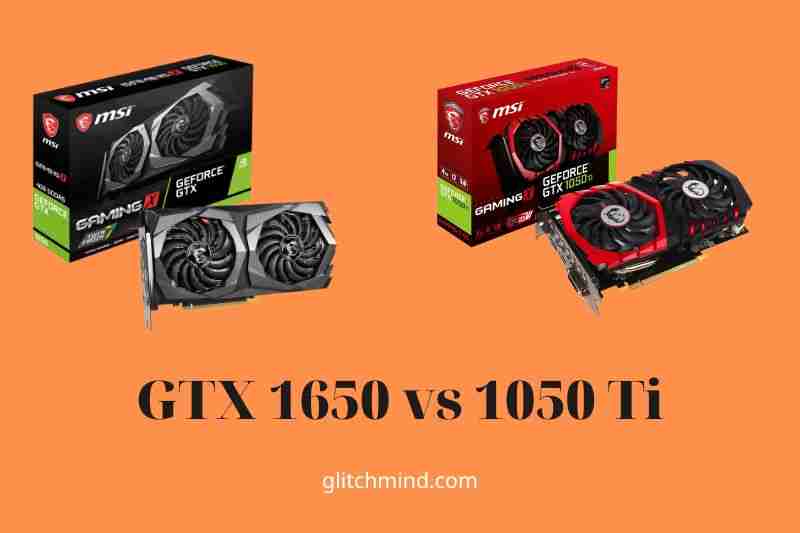GTX 1650 vs 1050 Ti: Which One Is Better? The GTX 1650 is a newer and more powerful graphics card than the 1050 Ti, but both are entry-level cards that are good for budget gaming PCs. 1650 is better for 1080p gaming and can handle some games at 1440p, while the 1050 Ti is better suited for lower-resolution gaming or e-sports titles.
NVIDIA GeForce GTX 1650
Its GTX 1660 might be the lowest-end model in the Turing collection of graphics cards. However, their price puts them out of the price range of most users on a budget. However, the GTX 1650 is closer to being affordable, costing 149.
NVIDIA models have always been characterized by low-cost costs and performance that knocks at the doors of basic graphics cards – mainly when the clock is pushed to the limit. After having the opportunity to check this Turing graphics card in the GTX 1650 thoroughly, we can be sure that it will continue the trend.
For the specs, this GTX 1650 leapfrogs its direct predecessor, the GTX 1050, by boasting a 2 percent more frame rate. It is also faster. GTX 1650 has 4 GB RAM, unlike the GTX 1050s, with 3 GB of video memory.
The gaming performance was awe-inspiring. This GTX 1650 consistently delivers significant frame rate improvements over GTX 1050 and NVIDIA GeForce GTX 1050 Ti and warrants upgrading.
With 1080p Full HD, we were capable of playing Fallout 76, Battlefield V, Call of Duty Modern Warfare, Resident Evil 2, and Strange Brigade at 63 FPS to 74 fps. We also maintained frame rates at 70 fps.
In 1440p Quad HD, the resolution was 1440p. We were able to run Valorant at 94 fps up to 94 fps and keep frame rates around the 94-fps mark. For 2160p 4K, it was possible to enjoy Valorant at 82 frames per second to the speed of 82 frames per second and keep frame rates at around 82 frames per second.
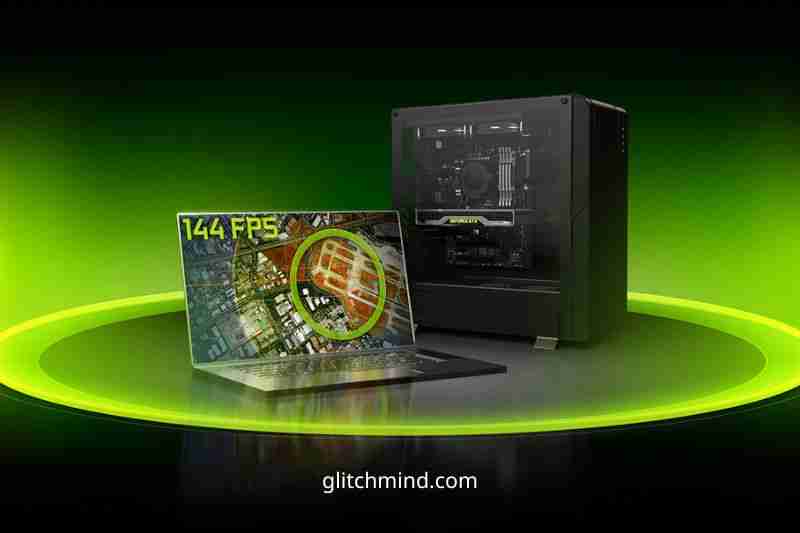
NVIDIA GeForce GTX 1050 Ti
Its GTX 1060 6GB could be the entry-level version of the most recent Pascal collection of graphics cards. However, their price puts them out of the affordable range of many users on a budget.
However, GTX 1050 Ti GTX 1050 Ti is closer to being affordable, costing 169. NVIDIA xx50 cards have been characterized by low-cost costs and performance that can knock on the doors of basic graphics cards – mainly when they are overclocked.
After checking this Pascal graphics card in GTX 1050 Ti GTX 1050 Ti model, we can state without any doubt that it will continue the trend.
The GTX 1050 Ti features 4GB of RAM, compared with the GTX 950s 2 GB RAM. GTX 950 ‘s 2 GB video memory. In our tests of synthetic benchmarks, it is evident that the GTX 1050 Ti blows past the GTX 950 and, amazingly, almost more than the GTX 960.
However, the gaming performance was not as good. Although you can prove that the GTX 1050 Ti consistently delivers higher frame rates than the GTX 950, the gain isn’t enough to justify a purchase. If it’s a valid upgrade is contingent on the graphics card you’re upgrading to from.
People who have a GTX 950 will not see an improvement in frame rates when they pay higher for the GTX 1050 Ti. In the same way, users who have the R9 380’s R9 280 graphics cards won’t have any reason to switch teams until.
To play 1080p Full HD, we were capable of playing Valorant at 80 fps up to 80 fps while keeping frame rates around 80 frames per second. When playing 1440p Quad HD, we could enjoy Valorant at 66 frames per second to 66 fps and keep frame rates at 60 fps.
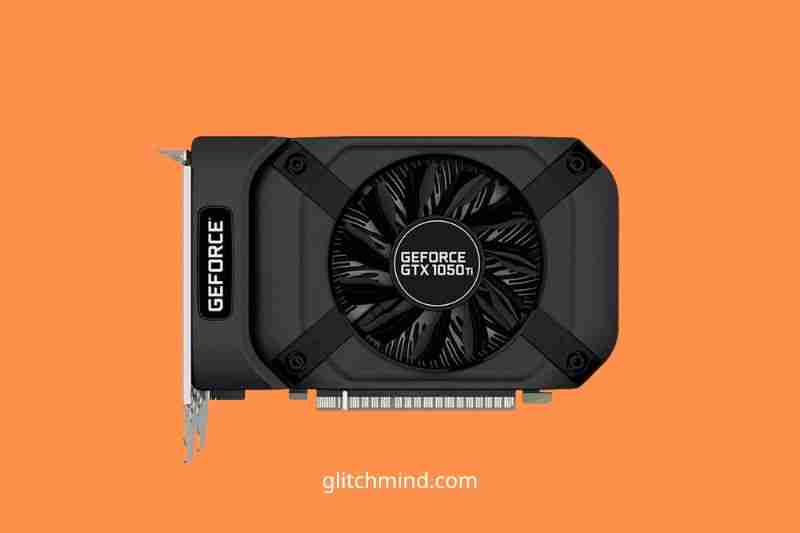
GTX 1650 vs 1050 Ti
1. Side-by-Side Comparison
As similar graphics cards for entry-level use, The GTX 1050 Ti and 1650 have several of the same features. Because the GTX 1650 is a newer card, Nvidia has provided several welcome improvements over the older generation. Check out the table below for an overview of how the two cards compare.
As you can tell from the comparison that the GTX 1050 Ti and 1650 are remarkably identical. Nvidia offers some improvements with GTX 1650. GTX 1650, such as more shader cores and faster clock speeds. The upgrades led to an increase of just a little bit in theoretical power.
However, the more important issue is whether these improvements will translate into improved performance in real-world situations in streaming, gaming, or performing other tasks that require graphics like rendering and editing.
General info
| Place in performance rating | 237 | 191 |
| Place by popularity | 1 | 2 |
| Value for money | 11.09 | 17.29 |
| Architecture | Pascal | Turing |
| GPU code name | N17P-G1 | TU117 |
| Market segment | Desktop | Desktop |
| Release date | 25 October 2016 | 23 April 2019 |
| Launch price (MSRP) | $139 | $149 |
| Current price | $201 (1.4x MSRP) | $267 (1.8x MSRP) |
Technical specs
| Pipelines / CUDA cores | 768 | 896 |
| CUDA cores | 768 | no data |
| Core clock speed | 1290 MHz | 1485 MHz |
| Boost clock speed | 1392 MHz | 1665 MHz |
| Number of transistors | 3,300 million | 4,700 million |
| Manufacturing process technology | 16 nm | 12 nm |
| Thermal design power (TDP) | 75 Watt | 75 Watt |
| Maximum GPU temperature | 97 °C | no data |
| Texture fill rate | 66.82 | 93.24 |
| Floating-point performance | 2,138 gflops | no data |
Compatibility, dimensions and requirements
| Interface | PCIe 3.0 x16 | PCIe 3.0 x16 |
| Length | 145 mm | 229 mm |
| Width | 2-slot | 2-slot |
| Supplementary power connectors | None | None |
Memory
| Memory type | GDDR5 | GDDR5 |
| Maximum RAM amount | 4 GB | 4 GB |
| Memory bus width | 128 Bit | 128 Bit |
| Memory clock speed | 7 GB/s | 8000 MHz |
| Memory bandwidth | 112 GB/s | 128.0 GB/s |
| Shared memory | – | – |
Video outputs and ports
| Display Connectors | 1x DVI, 1x HDMI, 1x DisplayPort | 1x DVI, 1x HDMI, 1x DisplayPort |
| HDMI | + | + |
| G-SYNC support | + | no data |
Technologies
| VR Ready | + | no data |
| Ansel | + | no data |
API support
| DirectX | 12 (12_1) | 12 (12_1) |
| Shader Model | 6.4 | 6.5 |
| OpenGL | 4.6 | 4.6 |
| OpenCL | 1.2 | 1.2 |
| Vulkan | 1.2.131 | 1.2.131 |
| CUDA | + | 7.5 |
2. 1080 performance
Beginning with our High-Quality setting results (because we’ll be honest, both cards can play games with Ultra), you can see in the chart following that GTX 1650 offers quite the leap in overall speed. With speeds of at least 10fps in many games, The GTX 1650 can provide speeds at High levels that GTX 1050 Ti would only dream of in Medium.
It’s the sort of advancement you’d like to see from this entry-level GPU that lets gamers play on a high-quality setting more than you’ve ever had before. Final Fantasy XV is still a tough crystal to squeak overall, but it does offer the lowest speed increase from my tests.
However, I’d suggest that an average improvement of 7 frames per second is likely to be as significant as any other since every frame is worth it when you’re towards the lower limit of 30fps. Even the extra frames can turn it into something playable, unlike the stuttering slideshow.
You may be hitting the fastest speeds on medium settings with these cards. Once again, the GTX 1650 offers a welcome increase in this area and can reach speeds of 15fps in Assassin’s Creed Odyssey. If you think the reason why Shadow of Tomb Raider’s performance is precisely identical, don’t worry.
It’s just that both quality settings gave nearly identical outcomes when I had their default SMAA anti-aliasing on in my tests, and I’ve observed on other graphics cards, too.
I’ve added Metro Exodus here because it’s not playable on either card with this benchmarking program’s high settings. This doesn’t mean you can’t achieve playable frame rates with High-quality in Metro Exodus with these cards (some imaginative tweaking of some options described within my Metro Exodus PC graphics performance guide should help you get a portion of the way to getting there).
However, to keep the whole thing fair and straight, I’ve kept everything within the profile of the benchmark’s presets as is to give an accurate idea of what “Medium” is actually like. What is the difference the Nvidia Turing GPU can make, changing a barely playable 30fps average into something more comfortable in the area of 40fps?
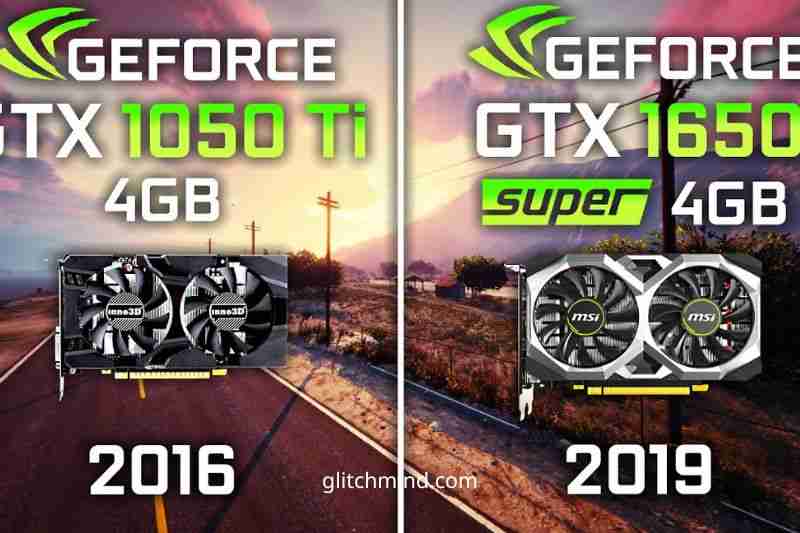
3. An In-depth Histories
Nvidia released the GTX 1050 Ti on the 25th of October, 2016, to replace the old GTX 950 series graphics cards. In general, the GTX 1050-Ti was a step up from the previous model, and benchmarks showed an average of 20% improvement in performance.
Nvidia created the GTX 1050-Ti to rival the Radeon RX 560 made by AMD. You may have heard the competition between AMD and Nvidia has been on the go for a while, but Nvidia frequently outdoes AMD in every version. This time was the same. Different, and the GTX 1050-Ti provides nearly 40 percent better than Nvidia’s AMD equivalent benchmarks.
Its GTX 1650, on the other side, was developed as an upgrade to the GTX 1050Ti. It was released on the 23rd of April in 2019, two years after the first generation was released, it was the GTX 1650 brought with it several welcome improvements. Its closest competitor to AMD is its predecessor, the Radeon RX 570.
What surprised everyone in the graphics card world was that AMD was ahead this time, and the majority of benchmarks gave the advantage on that Radeon RX 570.
Regarding prices are concerned, both the GTX 1050-Ti and 1650 remain extremely attractive in the entry-level segment. You may be disappointed to learn that despite their age, the two GPUs have increased in price compared to their MSRPs originally.
At the time it was first launched, the GTX 1050-Ti first launched, it was priced at $139. But, you’ll be fortunate to get one priced at less than $180 today.
The case is similar to GTX 1650. GTX 1650, which launched with an MSRP of $149. It’s the GTX 1650 typically sells for approximately $200.
Even with the price increase, You’ll be happy to see that GTX 1050-Ti and 1650 are an excellent value for the amount of performance you’ll get from these two models.
4. Five Must-Know Facts
- Each GPU supports up to three screens that have integrated DVI, HDMI 2.0, and Display-Port.
- Both cards are compatible with DirectX-12 to ensure compatibility with the most recent games.
- The GTX 1050 and 1650 are based on the old DDR5 video memory standard.
- Both cards work with PCI-E 3.0 to provide high bandwidth.
- The GTX 1050-Ti and 1650 are great gaming GPUs that can be used as entry-level models.
5. Power Consumption, Size, and Connectivity
Understanding each GPU’s power requirements is essential when considering upgrading. It is important to ensure you have enough power to accommodate your chosen card.
Luckily, both GTX 1050-Ti and 1650 come with minimal power requirements. Each card can run if you have a 250-watt or more excellent power source, and neither requires adding a power plug.
In terms of size is related, you’ll see that the GTX 1050 is slightly smaller than the GTX 1650, measuring just less than six inches in the case of the regular model. Its GTX 1650, in comparison, is about nine inches.
If you own a small PC, you might need to choose the GTX 1050-Ti due to necessity. If you have a more significant PC case or want to change to a larger one or upgrade to a larger one, then you can go with the GTX 1650 will fit just nicely.
Both cards support a broad range of gaming displays. There’s a DVI, HDMI 2.0, and Display-Port connector on both GTX 1650 and 1050, providing plenty of options to connect several displays.
6. Architecture
Although the 1650 is a basic model, its 1050 Ti is mid-series in its design. It’s challenging to overlook the 16-series’ superior design. 1650 is a part of the TU117-300-A1 version of the Turing microarchitecture. It’s packed with 896 CUDA cores. Because some are dedicated integer cores that allow simultaneous management of integer and floating-point goals, 1650 is said to have 50% more efficient shading performance.
The GTX 1050 Ti is a variation of the GTX 1050 standard. However, it’s built on the GP107 400-A1 Pascal version, which means it’s not as far in that it’s a different design.
It’s not as powerful as the 16-Series version, with 768 total units and slightly lighter on other architectural elements. The Ti features 48 textures units – 8 less than the competitors – in addition to 6 compared to 14 in the 1650s.
1650 also has 1.4 billion transistors more than Ti and a more efficient base (1485MHz as opposed to 1291MHz) and boost (1665MHz instead of 1392MHz) clock speeds. However, both GPUs come with PCI-e3 bus interfaces.
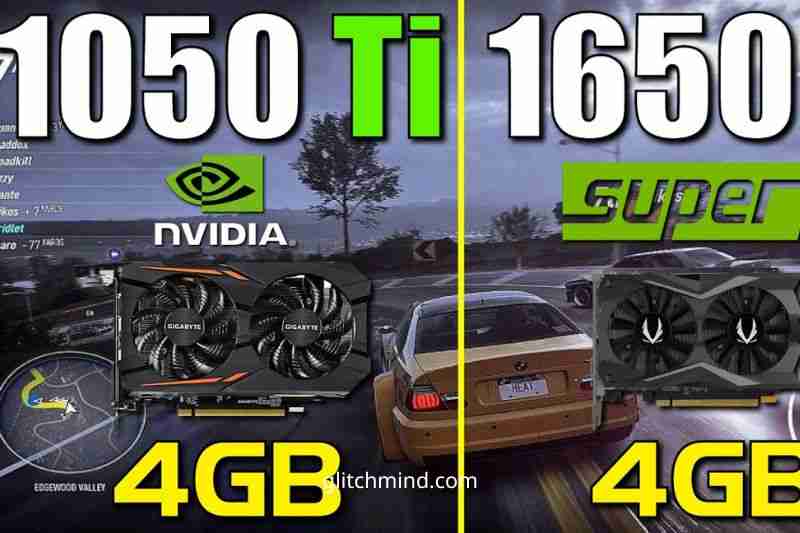
7. Cooling
With just 75 Watts, the cards are efficient in energy use, which makes them operate pretty cool. There’s even one called the Palit KalmX 1650 model that uses nickel-plated fins and heat pipes, which are connected to copper heat sinks that do not require fans on the card. That’s right! It’s cool and passively cooled.
1650 features a temperature capacity of 92degC and a throttling feature to stop it from going to dangerous levels, thereby giving your card longevity and a happy lifespan and ensuring that your GPU purchase was worth the cost.
Operating at 30degC around 45dBA and sustaining a load of between 60 – 70degC with an average of 45.8dBA, You’re in for an enjoyable journey.
With a good fan curve, The 1050 Ti can idle in the same 30degC temperature that its 16-Series rival under load, and you’ll be looking at 60-70degC. The 1050 Ti doesn’t draw power via its 6-pin connector, which means it’s not likely to generate enough heat to get anything close to its 97degC capability.
Don’t bother with custom loops if you opt for this card. If you plan to do some low-to-moderate level OC, the fans you choose to use should be in a position to handle the challenge.
8. Dimensions
Overall size is different between models; however, when it comes to Nvidia released dimensions for the GPUs concerned, the 1650 model is the one with the most significant die size at 200mm2, but it is the most miniature model. However, its difference is so minor that it will not make a huge difference for you.
Measures 4.37″ (H) x 5.1″ (L) x 2-slot (1650) and 4.4″ (H) x 5.7″ (L) x 2-slot (1050 Ti) These GPUs are actually quite tiny, but the 1650 is more is. If you’re making progress on your micro setup or are already operating a big or standard case, the cards won’t be able to cause any trouble.
One thousand six hundred fifty models can be longer than 9″, So ensure you go through the specifications using an incredibly fine-tooth comb before purchasing any item.
9. Resolution and Frames Per Second
1080p
In 1080p gaming at the highest settings, 1650 is undoubtedly the fastest, most powerful card. There are only a few tenths of a difference between the two for specific titles. In CSGO, For instance, the 16-Series GPU is only approximately 8 percent more frames per second compared to the Ti. Other games, like Fortnight, let 1650 truly breathe when it reaches the 30 percent difference.
In various games, it must be noted that none of these cards could even get to 60fps; however, even though it is settling into the 1950s, 1650 can achieve 1080p wins by an average of 17.8 frames, which is a 31 percent difference.
1440p
The cards aren’t ideally suited to play 1440p games. The average frame speeds per the second fall too low 40s for 1650 and less than 30 for Ti. In all, 1650 retains its lead at 31% and can also take over the 1440p battleground.
4K
None of these GPUs do well in tackling the 4K pixel load. The Ti is below the 20fps threshold, while 1650 reaches about 25fps winning a 31% win.
10. Ray Tracing
Ray tracing on hardware is impossible on both GPUs, so you might need to budget to get the full RTX functions. You can try using Nvidia’s ray tracer software to enable the general capabilities of GTX GPUs, but they’re likely unable to handle the rigors of RT load. It will not be as impressive as the experience dedicated RT cores offer if they don’t.
11. VRAM
Indeed, the GTX 1650 we’ve been chronicling in this intense GPU conflict comes with a four-gigabyte GDDR5 memory, however, should that not be enough to rock your boat, you could locate them with a 4GB GDDR6 memory kind. The price will increase; however, the advanced buffer boosts capacity and speed. It will also require you to purchase some case real estate since they run more frequently, thus a little longer.
We’ll ignore the 1650 version currently. The original 4GB GDDR5 features a 128-bit memory bus and 128.1MHz bandwidth, which totals the combined frequency of 2001MHz, or 8GBps in actual speed.
Like the 1650 standard model, 1050 Ti features 4GB of GDDR5 memory, which is the same memory bus with 128 bits, but it’s not as fast as that Turing technology in terms of speed and offers 112.1GBps per. However, it’s 1GBps slower than the 16-Series card in terms of speed, with a maximum frequency of 1752 MHz.
Which one is better for Gaming?
The most crucial test for a primary graphics card is whether it can stand up to the most played games. It is possible to make sacrifices to the game you play, like playing with low resolutions or settings or using lower frame rates. However, considering the cost, it’s worth it. The most important question is, which is the best for gaming?
After looking through various benchmarks on the internet, we’ve concluded that the GTX 1050 Ti or GTX 1650 GTX 1650 is sufficient for 4K gaming or gaming with ultra settings. However, this doesn’t mean that they aren’t able to provide a more thrilling gaming experience.
Our results were impressive when we tested them with high settings and full 1080p resolution. Check out the following benchmarks to find out how they compare.
As you would think, the older games that are less demanding, like League of Legends and Valorant, have shown impressive benchmark performance. Both GTX 1050 and 1650 handled these games with ease. The latest, more demanding games like Cyberpunk 2077 or MS Flight Simulator struggled somewhat and could be more fun on the lowest settings.
However, it is an impressive performance for graphics cards that cost this much. The GTX 1650 is the clear winner, with more frame rates in all games.
GTX 1050-Ti
- League of Legends: 272+ FPS
- Valorant: 117+ FPS
- Rocket League: 221+ FPS
- Overwatch: 89+ FPS
- Shadow of the Tomb Raider: 50+ FPS
- Apex Legends: 59+ FPS
- Metro Exodus: 38+ FPS
- Cyberpunk 2077 with 32+ FPS
- MS Flight Simulator 22+ FPS
GTX 1650
- League of Legends: 368+ FPS
- Valorant: 159+ FPS
- Rocket League: 301+ FPS
- Overwatch: 123+ FPS
- Shadow of the Tomb Raider: at 69+ FPS
- Apex Legends: 81+ FPS
- Metro Exodus: 52+ FPS
- Cyberpunk 2077 Cyberpunk 2077: 45+ FPS
- MS Flight Simulator 31+ FPS
Nvidia GTX 1050 Ti Vs 1650: Conclusion
Overall, it’s clear that the GTX 1650 offers a pretty adequate performance improvement over the GTX 1050 Ti.
Considering that they’re priced at precisely the same amount today renders GTX 1050 Ti almost outdated as a primary graphics card. As I said earlier, the biggest issue is AMD’s Radeon RX 570 is also close to the PS150/150 mark, which is more efficient than its predecessor, the GTX 1650.
It’s a fact that it. The GTX 1650 is a decent entry-level graphics card for those who want smaller and more energy efficient. However, in terms of performance, it’s not as powerful. RX 570 continues to reign over the rest as the best graphics card for people with cash issues.
Read also:
